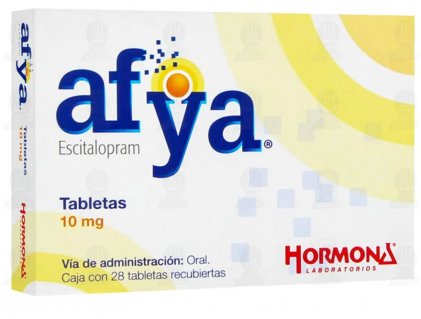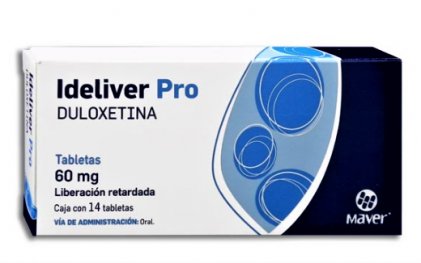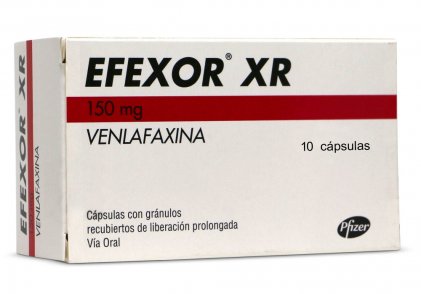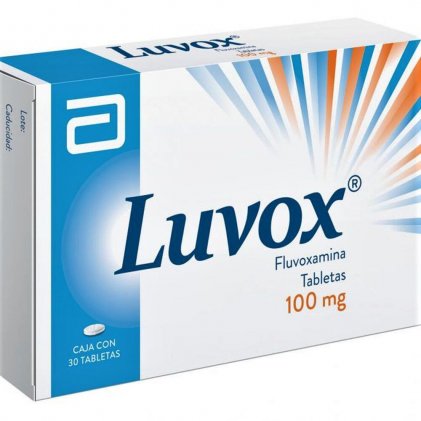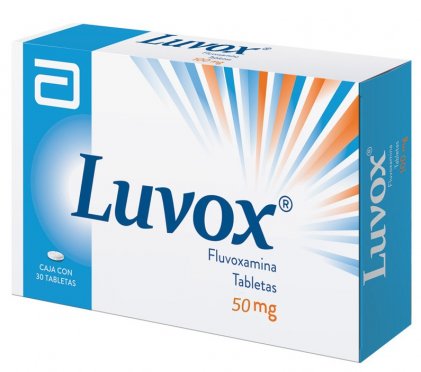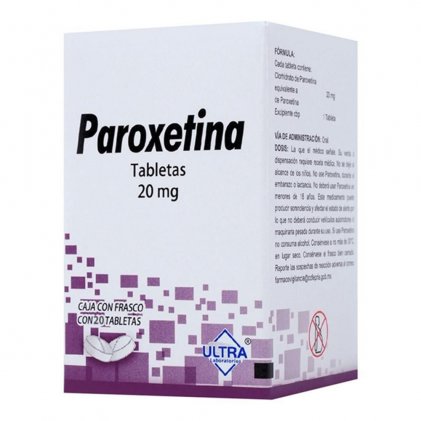Citalopram 20 mg para que sirve
Citalopram Generic increases serotonin by preventing its reuptake. The primary function of serotonin is to maintain harmony, balance, and emotional well-being, which is important when intervening in emotional disorders such as depressive disorders or in conditions with anxiety symptoms.
Citalopram Celexa is an antidepressant that belongs to the selective serotonin reuptake inhibitors (SSRIs) and serves to treat the following conditions:
- Eating disorders and alcoholism;
- Social phobia (excessive anxiety when interacting with other people);
- Panic attack (a condition that causes sudden attacks of extreme terror for no apparent reason);
- Premenstrual dysphoric disorder (a group of physical and emotional symptoms that occur each month before the beginning of the menstrual cycle);
- Depressions of various genesis (endogenous and exogenous);
- Affective (depressive, bipolar, dysthymic) disorders;
- Mixed anxiety-depressive disorders;
- Psychosomatic illnesses with autonomic dysfunction (including autonomic dysfunction of the cardiovascular system, respiratory system, gastrointestinal system, and urogenital system)
- Vascular dementia with depressive symptoms.
The drug is thought to work by increasing the amount of serotonin, a natural substance in the brain that helps maintain mental equilibrium.
Citalopram pregnancy
Based on data from reproductive toxicity studies (Phase I, II, and III), there is no reason to be particularly concerned about the use of Citalopram in women of reproductive age.
Citalopram generic should not be administered to pregnant women unless after careful consideration of all the disadvantages and benefits, it has been clearly shown to be necessary to prescribe the drug.
Citalopram penetrates into breast milk. The dose the infant receives with milk is approximately 5% of the maternal daily dose of Citalopram, calculated by body weight (mg/kg). No, or negligible effects have been observed in infants. However, the available data are insufficient to assess the risk to the child. Caution is advised when prescribing to women during lactation.
Animal studies have shown that Citalopram may affect sperm quality. Experience with some SSRIs administered to men indicates that the effect on semen quality is reversible. So far, no effect on human fertility has been observed. Therefore, the drug is prescribed with caution in couples who are planning a child.
Citalopram for anxiety
The maximum effectiveness of Citalopram in the treatment of the panic disorder is reached after 3 months of continuous treatment and is maintained through long-term treatment.
Depending on the individual patient’s response, treatment may be continued for up to one month. There are insufficient data from clinical studies of efficacy beyond 6 months.
Citalopram: max dose
For adults, depending on the indication, the starting dose is 10-20 mg/day, increasing to 60 mg/day if necessary. In patients over 65 years of age, 20 mg/day, with an increase to 40 mg/day if necessary.
Citalopram and alcohol
Alcoholic beverages prolong the effects of serotonin in the brain to a certain point. Citalopram, like MAO inhibitors, is an inducer of dopamine production. Therefore, when taken together with the drugs, alcohol increases the negative side effects. The degree of serotonin receptor activation is almost unpredictable. Most often, the interaction of alcohol with SSRIs results in sexual disorders, hallucinations, and depressive psychosis. In the latter case, there is a sharp and severe increase in heart rate, fever, vomiting, and other negative effects. Medical assistance, sometimes hospitalization, is required.
The interaction of two psychoactive substances can cause serious problems for your health.
Why you should not consume alcohol and Citalopram 20 mg:
- Increased depressive and anxiety symptoms. Alcohol use negates the use of antidepressants, making medication treatment more difficult. It may seem that alcohol, for a while, will improve your mood, but its overall effect will only worsen the symptoms of anxiety and depression.
- Worsening the side effects of medications.
- Decreased concentration, coordination, and memory. The combination of Citalopram and alcohol will affect thinking, coordination, motor skills, and reaction time more than just drinking alcohol alone. It can impair the ability to perform tasks that require high concentration and can be life-threatening.
- Increased sedative effects. The sedative effect of sleeping pills can be enhanced several times over. Increasing the combinatory effect. Or conversely, there may be a decrease in the effectiveness of the sleeping pills, which can disrupt nighttime sleep.
- The co-administration of two psychoactive substances (substances acting at the level of the central nervous system) may lead to hallucinosis – a mental disorder, leading to impairment of consciousness, impairment of memory and attention. This condition requires urgent medical care in a 24-hour hospital.
Treatment: if the poisoning occurred less than an hour ago and the victim is clear consciousness, has normal breathing, has no seizures, and no vomiting, you should give to drink water (up to 500 ml), cause him to vomit, give activated charcoal tablets up to 5 grams, and then give a strong drink of sweet tea or coffee.
Patients who are unconscious can only be gastric lavage by medical personnel – the ambulance team. Before its arrival the victim should be laid without a pillow, preferably on the stomach, and the head should be turned to the side to avoid vomit entering the airways in case of spontaneous vomiting.
Citalopram and weight loss
The problem of being overweight is often associated with disorders of the nervous system. This group of disorders includes compulsive overeating and bulimia. By taking antidepressants for weight loss, some patients hope to get rid of the pathological condition.
Indeed, Citalopram pill, in addition to its main purpose, promotes weight loss by increasing the production of the hormone serotonin. However, without a strict indication – diseases of the nervous system – it is highly discouraged to take this drug. Only a specialist can prescribe such medication since the drug contains a high concentration of psychotropic substances that can cause a backlash and “turn off” the feeling of satiety.
Citalopram for sleep
Depression is accompanied by an over-activation of the nervous system. In addition to changes in higher nervous activity and the emergence of anxiety and obsessive thoughts, imbalance also occurs in endocrine regulation – the number of stress hormones in the blood increases during depression. Developing changes lead to desynchronosis – disruption of human circadian rhythms, ensuring normal functioning of all organs and systems in a 24-hour regime.
In such conditions, it is quite difficult, and sometimes even impossible, for the nervous system to go from a state of wakefulness to sleep. It becomes difficult for a person to fall asleep not only in the evening but also after night awakenings, which against the background of depression appears more and more often.
Over time, an obsessive “fear of not falling asleep” appears, which provokes even more disturbances in circadian regulation and, accordingly, aggravates sleep disorders.
Citalopram 20 mg tablet is prescribed for insomnia if the cause is related to depressive disorders.
Citalopram: insomnia
Selective serotonin reuptake inhibitors change the way signals are transmitted between brain cells. Insomnia is a common side effect of Citalopram.
Overdose
Symptoms: drowsiness, nausea, dizziness, dysarthria, increased sweating, disorders of heart rhythm and conduction (sinus tachycardia, prolongation of QT interval, nodal rhythm on ECG), cyanosis, confusion, tremor, amnesia, rhabdomyolysis, coma, seizures.
Treatment: use of enterosorbents, gastric lavage or induction of vomiting (to reduce absorption), supportive and symptomatic therapy.
Side effects
Despite its effectiveness, the drug may cause undesirable effects:
1. Cardiovascular system: very common – palpitation; common – tachycardia, postural hypotension, hypotension, arterial hypertension; infrequent – bradycardia; very rare – supraventricular and ventricular arrhythmia.
2. Blood: rare – bleeding (e.g., gynecological bleeding, gastrointestinal bleeding, ecchymosis and other forms of skin bleeding or mucosal hemorrhages).
3. Nervous system: very common – headache, tremor, dizziness; common – migraine, paresthesia; infrequent – extrapyramidal disorders, seizures.
4. Organs of vision: very often – accommodation disorder; often – visual impairment.
5. Organs of hearing and balance: rarely – tinnitus.
6. Respiratory system: often – rhinitis, sinusitis, infrequently – cough.
7. Digestive tract: very frequently – nausea, dry mouth, constipation, diarrhea; frequently – dyspepsia, vomiting, abdominal pain, flatulence, increased salivation.
8. Urinary system: often – disorders of urination, polyuria, rarely – hyponatremia and syndrome of inadequate secretion of antidiuretic hormone (SNADH), mainly in elderly people.
9. Skin and subcutaneous tissues: very common – increased sweating; common – rash, itching; infrequent – photosensitivity; very rare – angioedema.
10. The musculoskeletal system: rare – myalgia; very rare – arthralgia.
11. Metabolic disorders and metabolism: often weight loss, weight gain.
12. General disorders: very often – asthenia; often – fatigue, yawning, taste disorders; infrequently – allergic reactions, syncope, malaise; rarely – serotonin syndrome was observed in patients who took SSRIs; very rarely – anaphylactic reactions.
Tell your doctor if you experience any complications.
Citalopram drug interactions
Co-administration is contraindicated:
- Administration of Citalopram simultaneously with MAO inhibitors may lead to the development of a hypertensive crisis (serotonin syndrome);
- Citalopram should not be used in combination with Selegiline, Moclobemide, Linezolid;
- It should not be used with drugs that prolong the QT interval, such as antiarrhythmics (Procainamide, Amiodarone, etc.);
- Neuroleptics (e.g., phenothiazine derivatives, Pimozide, Haloperidol);
- Tricyclic antidepressants and SSRIs (fluoxetine);
- Antimicrobials (macrolide antibiotics and their analogs such as erythromycin, clarithromycin; quinolone and fluoroquinolone derivatives: sparfloxacin, moxifloxacin;
- H1-histamine receptor blockers (Astemisol, Misolastin);
- Azole antifungal agents (Ketoconazole, Fluconazole).
Citalopram should be used with caution in persons whose activities are related to driving or operating moving vehicles.
Citalopram does not impair intellectual ability and psychomotor reaction speed, but some impairment of attention and concentration can be expected in patients due to the existing disease, adverse reactions from the current treatment, or both.
Citalopram online instructions are available in detail. The information on this website is not official and is for guidance only.
read more




